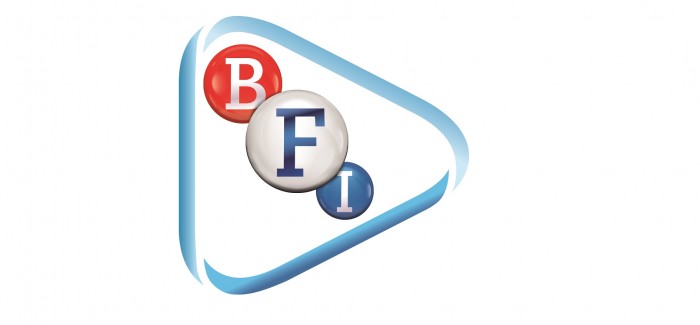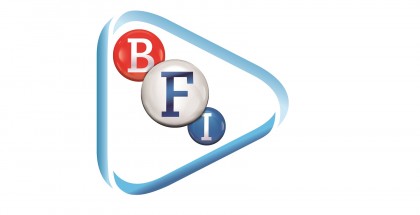Interview: BFI Digital Director Edward Humphrey on the BFI Player, short films and the changing world of on-demand
David Farnor | On 09, Oct 2013
The BFI Player launches today at 9pm in the UK. Offering 1,000 titles to people around the country, it provides a paid platform for independent and British films to reach a wider audience – and also makes available for the first time ever the BFI’s archive of British film. For free.
In short, it’s a big deal.
We sit down with BFI Digital Director Edward Humphrey to discuss the BFI Player, how video on-demand is changing the film industry – and what he likes to stream at home.
How do you think of video on-demand? Is it the future for the film industry?
I see on-demand as an additive to the film industry. I’m never swayed by suggestions that it is inherently cannibalistic. Equally for some audiences, it will always leave them cold. What I like about what it brings is the opportunity for people who want to watch things at home at a time that suits them. It makes sense that all the richness that the BFI has can be expressed to those people and make as much sense to them as the people who go to the BFI Southbank. I don’t see anything we do digitally as replacing or overstepping anything. It’s about tapping into audiences that have been under-served.
There’s a sense that independent films get lost on existing platforms…
That’s a real key point for us. The depth of choice on the commercial VOD platforms, by the nature of how they work, has to be about what’s currently selling well and other promotions around that. That’s completely to be expected – they’re commercial businesses – and that’s almost why institutions such as the BFI exist, to be able to intervene and tell a broader cultural story. I think specialist and independent film, certainly non-fiction, is really under-represented. There’s a real opportunity for us with the BFI Player to give a genuine alternative choice. That’s not to say “Don’t watch blinkbox, watch us!” but when you’ve seen something on blinkbox that’s mainstream and Hollywood, come to us for something which is a real counterpoint.
The potential for education is huge.
We’re really hopeful that there’s going to be a lot of crossover with 5-19 education and further and higher education. The BFI works a lot in that space and we already engage with schools and film clubs and higher education, but now the BFI Player is here, we’re going to try and work all the threads together so as many different learning organisations and institutions around the UK can use it as a resource.
“I think we are behind – this hopefully takes us a step closer.”
In terms of rights, do you expect content to be available permanently or on a temporary basis?
I think we will respect the windows distributors have with other platforms. Certain distributors will have a paid TV window at some point, so a title could come onto the platform and be there for several months, come off the platform to go onto paid TV exclusively – for example, like a deal with Sky – and then it could come back onto the player again as a library title. We’ll fit into the same window patterns as the other platforms.
And are titles available to rent or purchase?
It’s all rental. The rental period is the standard for the UK market: after purchase you have 30 days to watch and after that you have 48 hours to complete your watching.
The London Film Festival channel on the BFI Player is extremely exciting. There’s a lot of scope for live and interactive content. Is that on your minds?
Definitely. It’s on the horizon. We are privileged with The Epic of Everest: because we’re releasing it ourselves, we can choose to release it day and date with the festival gala. That’s something we’ve chosen to do. The nature of film festivals tends to involve films that are yet to reach their theatrical window, so distributors, obviously, don’t want to break that window by putting it onto a player synced up to a festival, then take it off again. So for them, there’s understandable hesitance around that. However, we’re going to continue to work with distributors to find ways that we can bring us closer. The things we can do are try to make as much of the event of the festival as live as possible. I think that, unfortunately, given when we’ve launched, we’re not going to have too many opportunities to do big live events this year, but certainly next year, we hope to have a real big programme of events on the BFI Player – talks and interviews with big talent, that kind of thing – for when you can’t get to London or they’re sold out. That’s all part of the plan.

The Epic of Everest – out simultaneously in cinemas and on BFI Player on Friday 18th October
There are a lot of festivals looking to video on-demand this year. The UK Jewish Film Festival has a VOD platform for films showing there. It’s a whole new undeveloped area.
Absolutely. There are lots of festivals in the UK and we’ve already starting talking to some of them about how they might be able to work with us in the future – at the BFI, we help to fund some festivals. If it’s about spreading the word about a broad palette of independent, specialised and British films, we’re all for it. We’ll continue to talk to other film festivals to try and bring some of their richness onto the BFI Player as well.
VOD releases tend to be presented as a home entertainment option. Do you have plans to release titles on the BFI Player alongside your DVD label?
Yes, we’re exploring how the BFI Player is going to work with our own DVD label. I think that’s something we’ll look to do in the very near future. Day and date with the DVD or day and date with theatrical is a really compelling message for the audience and it’s worth trying to tap into that as much as we can. The two day and dates we’ve announced already [The Selfish Giant and The Epic of Everest] are hopefully the starting point for a range of announcements going forward, both our own and from other distributors.
“Everything in this space is experimental… we’ll see how it goes!”
You’re launching the BFI Player as web-based service, but are you in talks with other companies about apps for devices, consoles, etc?
Samsung are our lead partners in the space and it’s fair to say we’re always talking about the evolution of what we have on their platform. [The BFI Player is available as an app on Samsung Smart TV.] We’d love to move our full transactional service onto their platform – that’s an ambition we want to make happen next year. And we want to open out to as many platforms as possible. We’re talking to a wide range of device manufacturers, but there’s no individual conversation I can talk about.
One thing that’s really revolutionary is your paid option to watch short films for £1. There’s never been a paid digital distribution model for short films before.
There’s not, no. Vimeo have their tip jar concept – if you enjoyed it, leave a donation – and I love that idea, but we’ve taken it down a simpler route. We think there’s value to everything on the BFI Player. We want to make as much of it available for free as we can, there’s stuff that the BFI wholly owns that belongs to everybody, but where short films have third party rights holders and distributors, we want to give them a way to start to monetize. Everything in this space is experimental and we’ll see how it goes!
What do you think is the biggest challenge the BFI faces in the digital age?
I think our biggest challenge is keeping pace with audience appetite. Our resources are limited, we’re not a commercial company, so we can’t invest millions of pounds in growing our digital offer but we’re working as hard as we can with the resources we do have. As you know, when it comes to the evolution of devices and the speed at which audience expectations move, our challenge is keeping ourselves up to where they expect us to be. I think we are behind – this hopefully takes us a step closer.
The industry is changing so rapidly now…
I first started working in VOD about seven years ago! I used to do VOD licensing at Disney. Back then, we still called it pay-per-view, you know. It was the very beginning of on-demand services. Right back then, everyone thought it would the change the world overnight. It didn’t. Just right about now, it’s starting to bite. The amount of people who are watching on-demand as an overall balance of the live, recorded, DVD and VOD spectrum, is now a meaningful chunk. I think that’s a great moment for the industry.
Even BAFTA have now changed the rules to allow online shows to be eligible for TV awards.
Like VOD is now a channel. I think that’s great. It’s happening.
Finally, what do you watch on video on-demand when you’re not working?
Personally, I’m a Virgin customer, so I have a TiVo set-top box and that’s my platform of choice.
Is the Netflix deal with Virgin customers of interest, then?
Not to me, personally, because I have two very young children – I’d love to be in a position to gorge on Netflix box-sets but I’m barely able to stay awake past 10pm! But when I do get the chance to sit down and watch a film, I tend to use the Virgin platform at the moment. As of the 9th October, though, I’m only going to be using the BFI Player!
The BFI Player will be live on Wednesday 9th October http://player.bfi.org.uk. Read our launch guide – which contains everything you need to know – here.



















